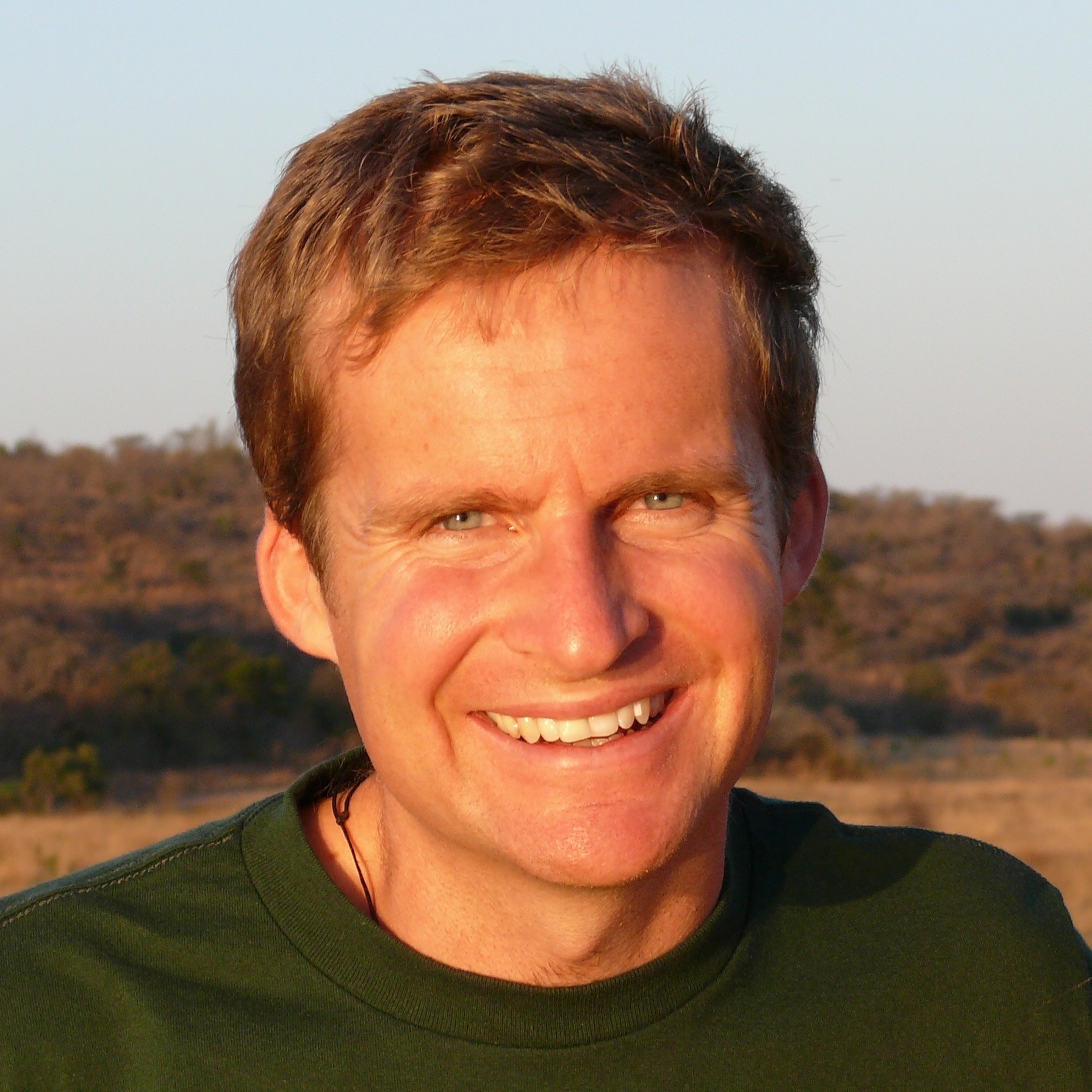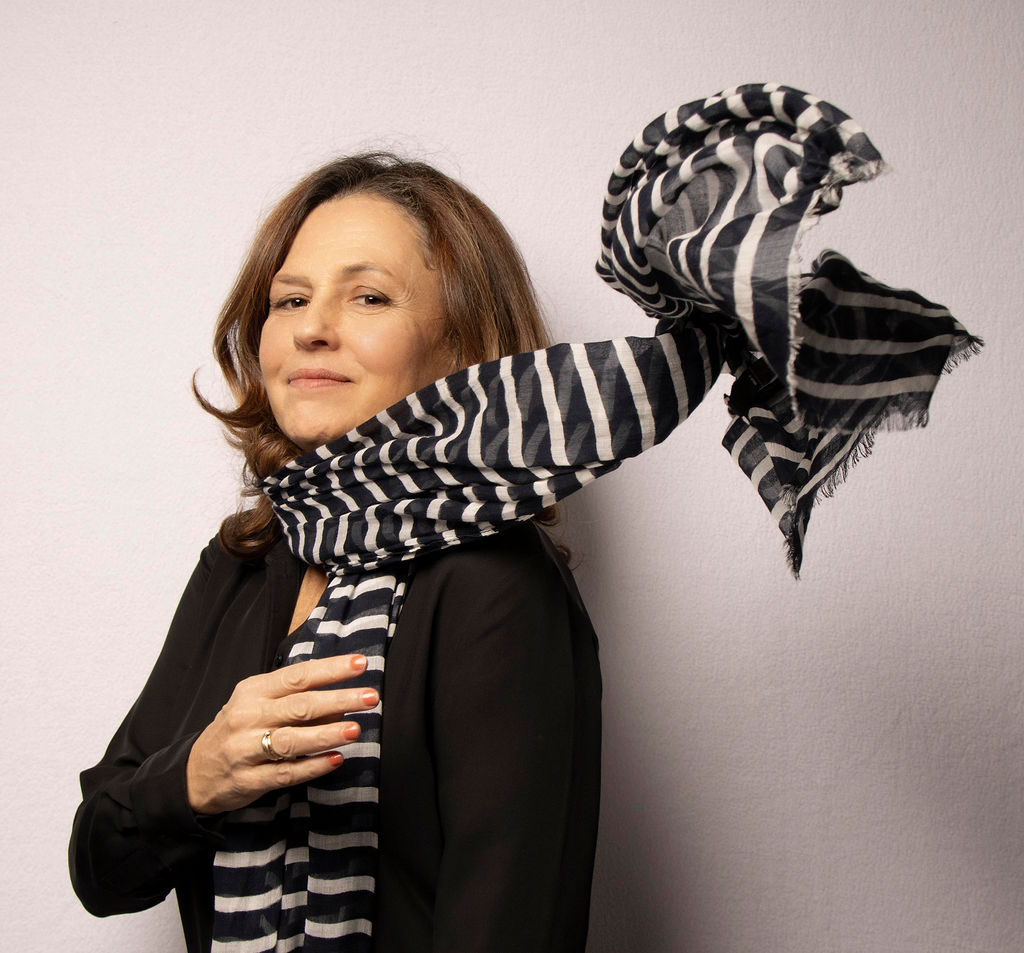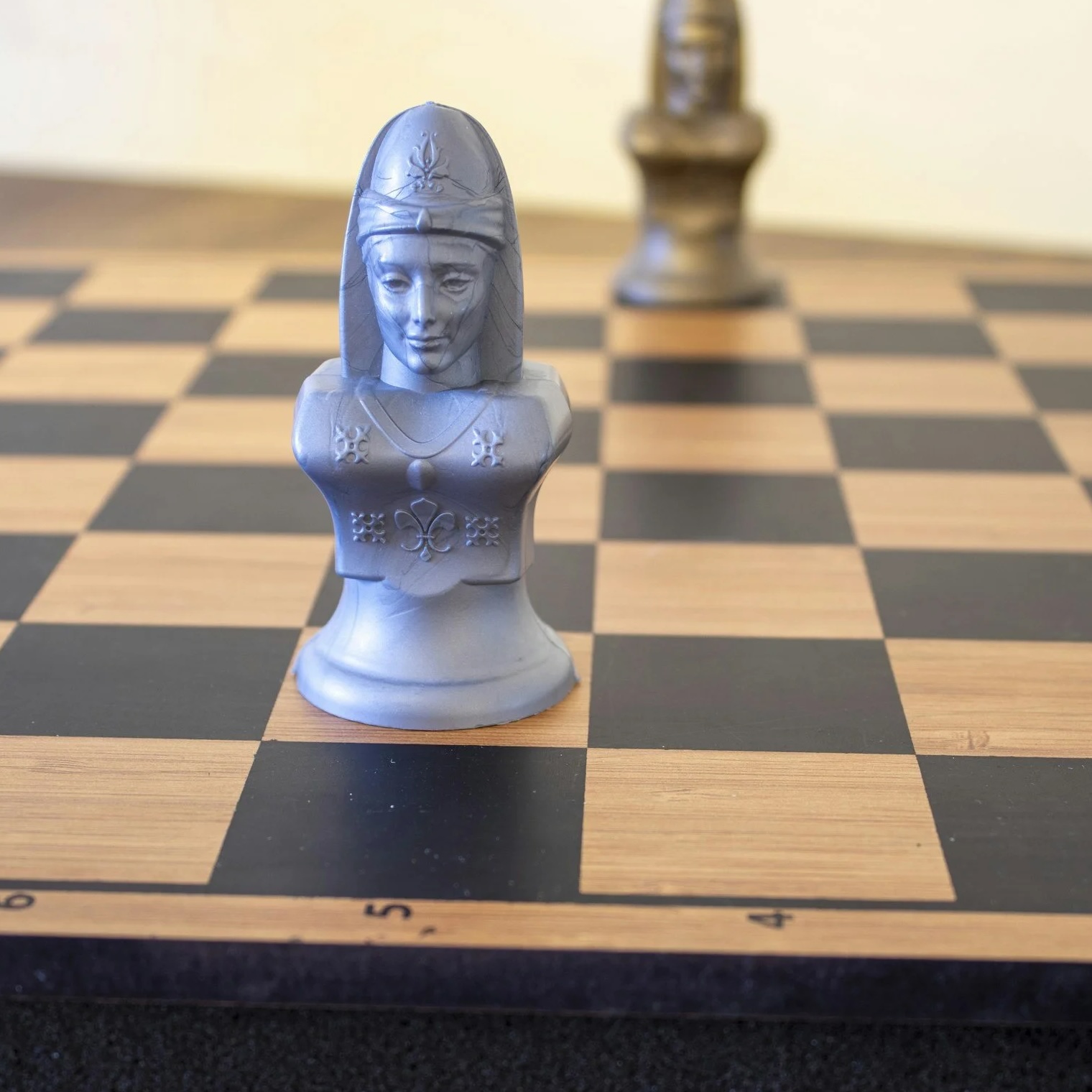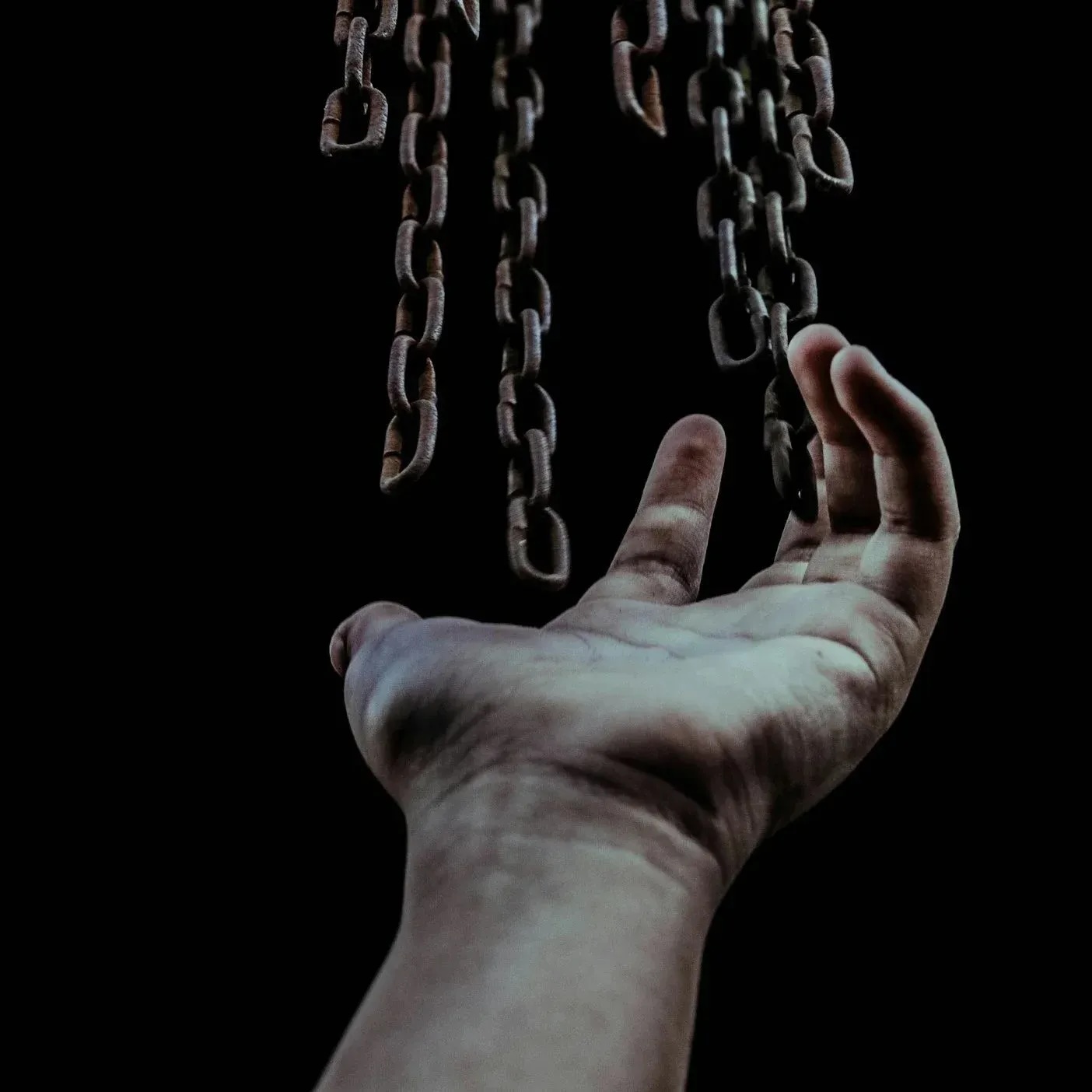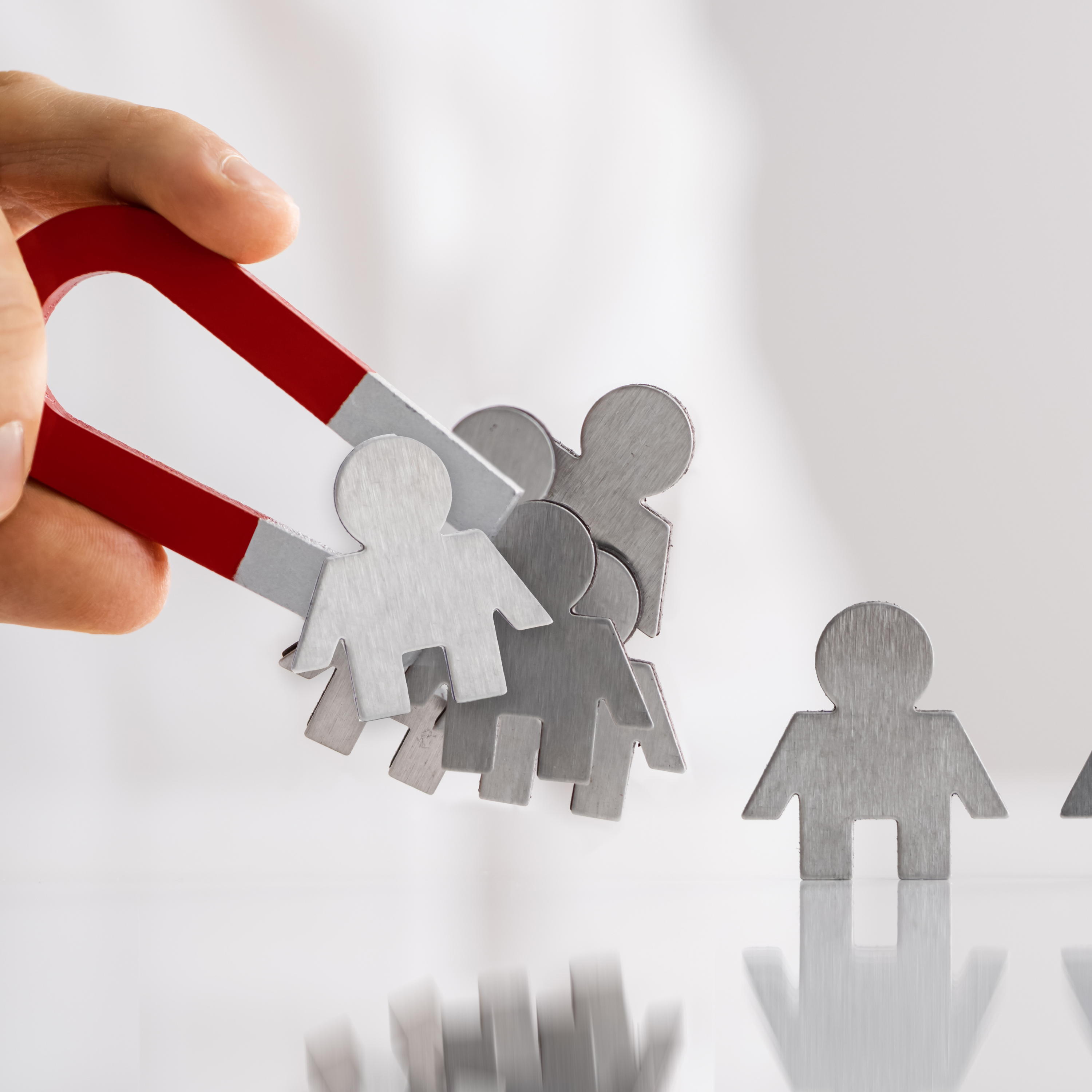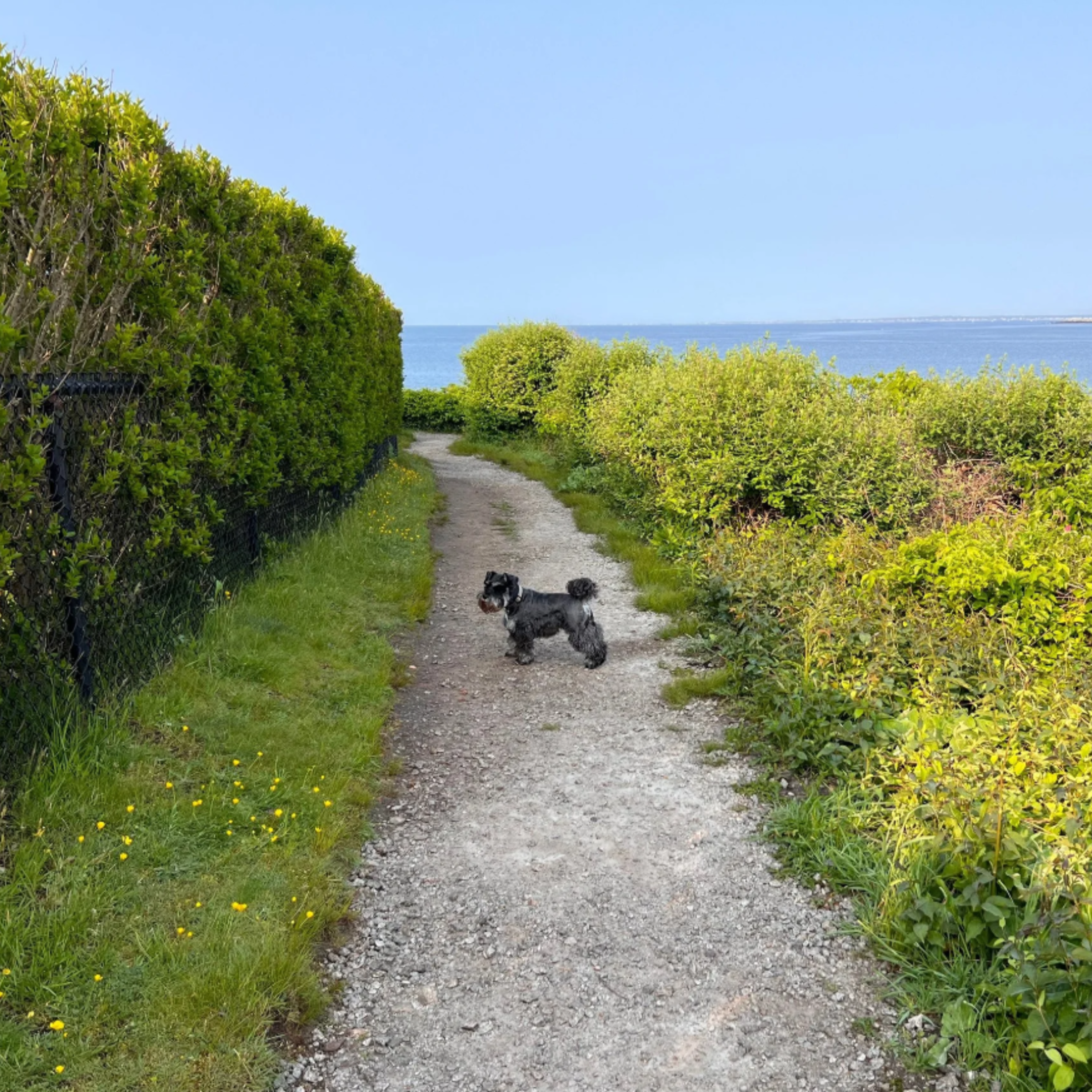Episode Transcript
[00:00:01] Speaker A: Welcome to today's episode. I am Diana Earley, and I'm excited to share this conversation with Christopher Hill, the founder of Hands Up Holidays. Picture this. You're on vacation in South Africa, staying at a luxury lodge, enjoying amazing safaris, and then you spend part of your trip building a house for a local family.
That's exactly what happened to Christopher back in 2002, and it changed his whole life.
Christopher was working in finance in London when he took that first trip to South Africa.
What started as a regular vacation turned into something much bigger when he helped build a house in a township in Cape Town. The experience was so powerful that he left his banking career to create something new, a way for families to combine luxury travel with meaningful service.
Today, Christopher runs several travel companies from his home in Auckland, New Zealand. His main business, Hands Up Holidays, creates custom trips where families can stay at Eko luxury resorts while spending part of their vacation volunteering.
They might help with sea turtle conservation in Costa Rica, relocate rhinos in Botswana, or build accessible bathrooms in Bali.
What makes Christopher's approach special is how he thinks about legacy. He believes vacations can create lasting change, not just for the communities being helped, but for the travelers themselves, especially kids. He's seen families bond in new ways when they work together on projects that matter.
In our conversation, Christopher shares stories from nearly 20 years of running these trips. He talks about the challenges of balancing luxury with purpose, how different cultures approach service, and what it's like watching his own kids grow up mixing cement and painting classrooms around the world.
We also dive into some interesting topics, like how he handles screen time for his own family, why Costa Rica is both a blessing and a challenge for eco terrorism, and what he learned about resilience from losing his backpack on his first trip to Africa.
Christopher's story shows how one unexpected experience can completely change your path in life.
Let's hear how mixing cement in South Africa led to a business in that's touching lives across 11 countries.
Here's my conversation with Christopher Hill, founder of Hands Up Holidays.
[00:02:34] Speaker B: Well, thank you so much. It's a labor of love.
[00:02:37] Speaker A: Yeah. And I noticed that your first trip to South Africa in 2002 is what triggered the whole thing.
[00:02:44] Speaker B: Yeah, that's exactly right. I was working in finance in London at that point, and I took this trip down there.
And in addition to going on safari and exploring the wonders of Cape Town and garden route, I also helped to build a house for a family in one of the townships just outside of Cape Town.
And this just enriched the whole travel experience for Me in two main ways really. One, it enabled me to actually get to interact with local people and hear their stories and gain insights into their lives.
And secondly, it just felt great to actually to make a difference to the family that we were helping alongside. And so I got thinking, well, you know, I've learned some good business skills. Why don't I put them into something I find a bit more meaningful and fulfilling and make it easy for others to have experiences like I've just had.
[00:03:47] Speaker A: Not everybody goes on vacation and just thinks to just jump in and help build a house for someone. Like, how did that come about?
[00:03:54] Speaker B: That's a great question.
So I'm originally from New Zealand and as I say, I was working in finance in London and in my first apartment in London I was rooming with a couple of guys and one of them was English, but he had spent some time in South Africa and he, while I was living there, did move back down to South Africa and a few years later he ended up becoming a tour guide down there.
And in his off season he invited me on a trip with him down there. So that was the trip I took.
And when we were roommates he saw me coming in at, you know, crazy hours of the night.
And at that point anyway, we were just sort of tossing around different ideas, different career ideas basically. And he knew that travel was a passion so it was something along those, sort of in that vein. So I remember another idea that, that he came up with was like photography themed trips, which I thought would be great. But at the same time, you know, I was a little bit, been there, done that in terms of other providers. And so I had this idea of even actually, before going, actually doing the house building, I did have the idea of combining the, some luxury with vacation with giving back.
And so I mentioned it to him just as, as an idea and he said, well, I've got a relationship with the guy who runs Habitat for Humanity in Cape Town. While you're here, do you want to see if, if they've got an opening? And I said, yeah, sure, that'd be great. And, and so that's, that's how it all came about.
[00:05:55] Speaker A: Wow, you built one house on that first trip?
[00:05:59] Speaker B: Yeah, from beginning to end, single handedly and not with any sort of skills.
Definitely assisted by local experts.
[00:06:07] Speaker A: Yeah. What was your first job?
[00:06:11] Speaker B: My first job?
[00:06:12] Speaker A: No, I mean on the job, on the house.
Were you like, were you sweeping cement, mixing cement?
[00:06:18] Speaker B: Cement, yeah.
[00:06:19] Speaker A: Oh, cool.
That's so cool. So they were teaching you some skills while you were doing that?
[00:06:25] Speaker B: Well, yeah, yeah, that is part of it. Yep. True.
[00:06:28] Speaker A: That's very cool. My daughter went on a service trip for her school to Tanzania and they painted the walls of the school there and they taught, they read to them in English.
[00:06:41] Speaker B: Yeah, fantastic. We actually also do have a division called Hands up School trips and we do that exact sort of thing and.
[00:06:48] Speaker A: Oh, you do you offer it to schools?
[00:06:50] Speaker B: We do, yep.
[00:06:52] Speaker A: Another year they went to Cambodia. They built a house for a single mom out of bamboo.
[00:06:58] Speaker B: Fantastic.
Yeah. So were you familiar with the concept then?
[00:07:01] Speaker A: I am, I am. I think it's so cool that you're offering this to families now.
[00:07:05] Speaker B: Yeah, yeah, it is. It's. It's a really exciting sort of segment to be involved with. And actually when I first launched it, so that trip I took to South Africa, as you said, was in 2002, and then we launched in 2006.
And at that point it was young professionals who was my sort of target audience.
25 to 35 year olds, cash rich, time poor, who wanted to have a great vacation and wanted to make a difference. But really from the get go, it was families that were booking with us. And back then, families weren't on my radar at all. It just didn't occur to me that they'd want to be traveling with us. I didn't have children of my own back then, and so I would ask them and they'd say things like, oh, well, our kids come from quite privileged backgrounds and would really like them to appreciate just how fortunate they are. Or they'd say, we're looking for a great family bonding experience. And this, this nails it for us.
And so that really resonated with me, and even more so now that I do have children of my own.
And so over a little bit of time, we started to shift our messaging to be focusing not exclusively, but certainly primarily on families.
[00:08:29] Speaker A: What percentage of the trip is service and what percentage is vacation? Hanging out, having fun, doing whatever sport people like to do.
[00:08:39] Speaker B: Yeah, yeah. Well, every trip is tailor made and so there's no rigidity to it. But as a rule of thumb, probably most of our clients are Americans who don't tend to have enormous amounts of vacation allowance. And so trips tend to be eight days, and of that two to three days is the service component, and then the rest of the time is customized leisure activities.
[00:09:08] Speaker A: And how luxurious is that part?
The accommodation?
[00:09:14] Speaker B: Yeah, I mean, the, the luxury runs throughout, so including whilst volunteering.
And yeah, it's as luxurious as you want it to be, certainly in terms of the accommodation, I mean, you know, when people think of luxury, they can think of, you know, the Four Seasons or the Waldorf or, you know, Amman or six Sensors.
And so, you know, we, we do work with all those properties. And I think, however, it's important to stress that we lead in our recommendations with those properties that are eco luxury, I. E. They take sustainable luxury seriously.
So I mentioned just now six Sensors. That's one good example of a global brand on the smaller scale, but still global, that does take sustainability seriously. And then there are others that could just be standalone hotels that are really at the forefront of sustainability. And those are the ones that we love because they still do offer the creature comforts, but the they in their design, in their construction and in their daily practices, they are taking, as I say, environmentally friendly practices. Which because we have a holistic approach to our trips which covers, you know, does cover the volunteering, it covers the accommodation, but also things like the, the restaurants that we recommend are those that use organic ingredients and source those ingredients locally. And, and then we also have a philosophy of employing local guides. And so the eco luxury is part of that overall holistic philosophy.
[00:11:05] Speaker A: That's fantastic. Do you ever get people who are, let's say, Four Seasons type of customer?
Do you see a difference between that type of customer or the one that will like the local Echo Lodge?
[00:11:23] Speaker B: Oh, well, we absolutely do get the Four Seasons customers and I wouldn't say there's necessarily that big a difference, particularly no.
And if the client is a lifelong Four Seasons aficionado, then assuming that there is one available in the property in the destination that they're going to, then they'll stay there and you know, there are. And that's available in a lot of our destinations as well. You know, Four Seasons is one of those great crossover brands that does have, you know, the, the properties in the, in the big cities of the world, but then also in, in Africa and in, in Latin America as well. So yeah, it certainly is. Is a staple for us. I mean, you know, one that springs to mind is Four Seasons in Costa Rica. Costa Rica is one of my most popular destinations. And so it's quite typical that the volunteering component can be say in the Arenal area and that can be staying at say Nyara tented camp, which is absolutely amazing sort of glamping style tents with plunge, private plunge pool and so on. So it's no compromise made.
And so they can stay there whilst doing the volunteering component, which might be helping at a wildlife rescue center or it might be renovating a school.
And then head over to Papagayo and finish up the Four Seasons for some relaxation time.
[00:13:09] Speaker A: Interesting.
Yeah. I've stayed at an Echo Lodge in Guanacaste. I don't want to say the name because I don't want to attract more people to it.
I'm gonna keep it a secret, but I do remember there was a local guide there who was also a bartender and he said that thanks to the hotel, he is now more aware of environmental practices and picking up trash.
[00:13:35] Speaker B: Yeah, it makes a lot of sense. And Costa Rica is really at the forefront of Aussie Calux Properties.
There's a government instituted rating system for each hotel in terms of their sustainability practices.
So they combine that with the luxury incredibly. Well, yeah, they're probably the benchmark.
[00:14:03] Speaker A: Yeah. But they're still ruining a lot of rainforest down in the osa. They're destroying some rainforest down there. The government's trying to clamp down on some of that development. They say they're building Echo Lodge, but they're like tearing down habitat.
[00:14:20] Speaker B: Those are the ones we steer away from. There are others that do really take that footprint very seriously and manage to install their accommodation and really not damage the underlying environment at all. And those are the ones that we seek out.
[00:14:37] Speaker A: You're mostly in the Arenal area for the volunteering?
[00:14:41] Speaker B: Yes. Plus some sea turtle conservation work in osa. Yeah.
[00:14:47] Speaker A: Okay. Now that you're a parent, how do you balance green time in your family?
[00:14:53] Speaker B: It's a real challenge. And for us, it's a case of being vigilant. What's been surprisingly effective is talking with the kids and agreeing what the screen time should be and impressed with the reasonableness that comes from them on that and then.
And then being vigilant on, you know, setting up the right controls on their devices and being clear on those boundaries and enforcing them. But yeah, it's an ongoing struggle.
[00:15:25] Speaker A: Do you see that with the families who are coming on your trips as well?
[00:15:31] Speaker B: Yeah. Now, obviously it's up to the parents to decide how to handle that, but, yeah, it's a global scourge, really. The first thing people, and particularly kids look for is when they get to accommodation. What's the WI fi code?
It is a problem. Yeah.
[00:15:48] Speaker A: Oh, my goodness.
So do you organize everything but the actual travel to the main airport?
Right.
Or do you handle generally?
[00:16:00] Speaker B: Yes, generally. But we can.
We. We have done and do, you know, arrange, you know, a limousine transfer from your home to the airport as well.
[00:16:09] Speaker A: Yeah. So you are sort of like. You are like a travel agent in a way.
[00:16:14] Speaker B: Well, we are. I think the, the only sort of distinction, or the main distinction, I think, is that an agent will sell whatever, a range of products, whereas we only sell our own brand.
[00:16:28] Speaker A: Do you have special agreements with airlines.
[00:16:33] Speaker B: Generally? Not, no. We just sort of book directly with the airlines without any agreement with them. Yeah.
[00:16:40] Speaker A: One of the things that I was struck by is the word legacy.
[00:16:45] Speaker B: It sort of. It lends itself to. To Hansop holidays in terms of something that's enduring and that can be both in the destination itself and then enduring in terms of impact on the family or whatever traveler it is.
And so it can be things like building a house or a classroom at a school or a library. In the Handsome Holidays context, I do tend to think of it in terms of, as I say, something physical that's, that's enduring and, and then the, the, the impact that has particularly well, on the whole family members, I was going to say on the children, but it is definitely broader than that.
And, and that can tie in as well, I think, with our intergenerational trips that we run, where it can be children with their parents and then with grandparents and doing something of significance together.
It instills it in the intergenerational context for multiple generations. And that sort of segues into another brand that we run, which is called impact destinations. And that one is kind of an extension of the concept of philanthropic travel in that with impact destinations, in contrast to handsome holidays, where there is this physical actually helping component, the idea with impact destinations is that it's the philanthropic donation which enables the experts in the destination to do what they do best and at the same time unlocks a unique experience for the traveler.
And so, for example, coming back to South Africa on a safari day there, guests can fund and witness a rhino relocation from a reserve that is facing a lot of poaching to a better protected reserve in Botswana. So this is where the guests actually go into the helicopter while the veterinarian is darting the rhino, and then once the rhino has been darted, land and spend some time with a sedated rhino and then see it get airlifted off to. Off to Botswana. And so that is where it is again, leaving a legacy. You can say, you know, I saved the life of a rhino, but whilst on my vacation.
Or another example would be in Australia, where guests can fund a scholarship for a promising Aboriginal arts student, and in return for that, they get to spend some time with an established Aboriginal artist from whom they can commission their own unique work of art.
So it was leaving a legacy in terms of the impact on the scholarship student and then something enduring in terms of the work of art that the clients get to bring home.
[00:20:07] Speaker A: So that's a great way to discover nonprofits and do a site visit and.
[00:20:11] Speaker B: See it is dynamic.
[00:20:13] Speaker A: Yes.
Do you have any of such organizations in Costa Rica?
[00:20:19] Speaker B: We do, we do actually, yeah.
They're all environmental. There's one that's associated with creating a marine corridor for hammerhead sharks in Ulsa actually as well, and for spinner dolphins. And so it's working with marine biologists there. And so going out on the trips with them and actually going out to the mega pods of spinner dolphins and assisting the marine biologists in small ways. But really mostly it's enabling the marine biologists to get out there in the first place because that's exercises to get to do that.
[00:20:56] Speaker A: You work in how many countries? So there's Costa Rica, there's South Africa, there's.
[00:21:01] Speaker B: Yeah, in the. Well, for, for impact destinations.
[00:21:05] Speaker A: It's.
[00:21:05] Speaker B: It is smaller. We. We cover I think about 11 countries there.
So off the top of my head mentioned Costa Rica, there's Chile, there is Iceland, there's India, there's Australia, New Zealand.
There is Italy.
There is.
Or Indonesia.
I think that might be about it.
Oh, and Canada actually as well. Yeah.
For absolute completeness, there is a fourth brand which is again, it's a similar concept but targeting corporates. So it's hands up incentives. The focus there is more around corporate social responsibility and team building and employee engagement through the medium of that volunteering project. And those tend to be quite big projects and where possible, we align them with the company's own area of operations. We did a trip with Ecolab and that was installing fresh water access in schools. In Morocco. We had about 200 people across three different schools working on those projects as part of their wider trip that they were doing in Morocco, you know, building classrooms, cultural centers. In Hawaii, we've done libraries with, with the corporates, which has been a lot of fun too.
[00:22:46] Speaker A: Oh, that's really cool. Is there a website for that? Because I have the hands up holidays and impact destinations. But what's.
[00:22:52] Speaker B: Is there another. Yeah, there is. There is actually, however, the hands up. It's called Handsupinctives.com that one's currently being, you know, redone. But there is one. Yeah. Handsupincentives.com is that one.
[00:23:07] Speaker A: I could see that would be really fun for, for corporate teams to go on a trip like that. It's. It would really definitely bring them together. I love the concept of Teams and teamwork.
[00:23:16] Speaker B: Sure. Super powerful.
[00:23:18] Speaker A: Well, I mean, a family is a sort of team, too, but.
[00:23:21] Speaker B: Indeed.
[00:23:22] Speaker A: Yeah.
[00:23:22] Speaker B: Yep.
[00:23:22] Speaker A: Yeah. But I love this idea that everybody's pitching in together on one goal. One of the points that you brought up was learning from adversity and you lost your backpack in Africa.
[00:23:34] Speaker B: I did. On one of your trip, yeah. Yeah. Well, it was my very first time in Africa and literally two days into being in the continent.
So after university, I was all set to become a lawyer and had arranged with the law firm that I was going to start with to travel for about nine months. And my thinking at that point was travel and get travel out of my system and then settle down and.
And become a lawyer.
And so, as I say, I traveled for about a month in Australia first and then went on to Africa and was meeting a friend who was flying down from. From England to join me. And then we were going to join a tour up in Kenya, but we met in Zimbabwe and we had. I can't remember how long, I think about two weeks before our tour started to get up to. Up to Kenya.
And we found a.
A truck, an overland truck that had done a tour and was on its way back up to. I think it was only going as far as Malawi and, and that. And that was. So that was going to get us as far as Malawi and they would figure out how to get up to Kenya from there.
And so we got in the truck and there was a few other travelers doing a similar sort of thing as us.
And then the driver decided that he wanted to drive through the night in order to get to Malawi more quickly. And we had absolutely no say in it.
We were just paying passengers.
And so we pull into a campground and.
And sort of just got ready for the night, got our sleeping bags out. And this is pre. Pre luxury days for me back then.
And we did that. So. And drove through the night and in the morning stopped for a, like a. A cup of coffee. And the. Our luggage was stored in between the. The two sets of wheels of the. Of the truck.
And someone was, you know, getting their things out of a backpack. And then a girl that we were traveling with said, oh, where's my backpack?
And. And I then had a look for my own. And it's like, oh, where's my backpack? And they. They weren't there. And the. The driver, Ashley, admitted that he didn't recall sort of locking the compartment.
And the girl was traveling with her boyfriend and they had. This is going back.
This is 1995, so way pre digital, they had all their photos. They'd been traveling for, like, two years and had all their photos in there, so they were particularly distraught. And so the boyfriend said, I'm going to hitchhike back down to try and find. Find it. Because we had no idea what. What had happened to it. We thought maybe they'd, like, just fallen out at the campground.
And so because he was going, I decided to go with him.
And anyway, long story short, we never found the backpack. But what it showed me was that, well, when we. The next day, we had to hitchhike back to try and meet up with my friend and his girlfriend, and there was a South African couple ended up picking us up and taking us all the way, and. And they end up giving me, like, a blanket and some. Some clothes that. That were going to donate as part of their trip.
And. And then I was a bit concerned because my malaria tablets were in my backpack. But once we got to Malawi, there was someone there who. Who had extra, and so she gave me hers.
And then fortunately, I was a similar size to my friend who I was traveling with. And so I basically lived out of his backpack for the next few months in Africa.
So I just learned a lot about, one, the generosity of other travelers, and two, sort of living with very little for a few months as well.
[00:28:07] Speaker A: Oh, wow, that's amazing.
I feel bad for those people that lost their photographs, though. That must have been really hard.
[00:28:13] Speaker B: Yeah. Yeah. Super tough.
[00:28:16] Speaker A: I guess that's the good thing about the cloud. Now you can put things on the cloud and.
[00:28:19] Speaker B: Yep.
[00:28:20] Speaker A: When did you start this business?
[00:28:23] Speaker B: We started in 2006 is when we launched. Yeah, so nearly 20 years ago now.
[00:28:29] Speaker A: Okay, so before you had the kids.
[00:28:32] Speaker B: Yeah, yeah.
[00:28:33] Speaker A: Ah, so that's cool. They get to grow up while dad is doing this business.
[00:28:39] Speaker B: Yeah, they do. And so we've taken them on some great adventures.
You know, one standout recent one was to Bali, where we got to help with installing a disabled accessible bathroom for a paraplegic.
And it's been a favorite of mine for quite a while.
And so extra special to be able to do it with the whole family, because it's unique for us in that the benefit accrues to just one person, but the impact on that person is so profound that I love it. And the reason for that is that Bali, being a Hindu island, if you are born with a disability such as being paraplegic, it's considered bad karma.
And so all too often, really, sadly, paraplegics can be sort of hidden away from the rest of society.
And Lead very lonely lives. So to be able to create a bathroom where they can have a measure of independence and dignity in such a personal area in terms of going to the bathroom is a really profound.
So it was great. So we, you know, the kids were able to, in addition to, you know, playing with the local children, which is you know, really, really a key aspect of what we do, they were able to, you know, draw water from the well and then take it over to back, you know, similar to, to my days when, when I was first building the house in South Africa, you know, got involved with mixing the cement and then ladling it into the, the wheelbarrows and then we're wearing it over to where the experts are doing the tricky parts.
So yeah, it was, that was a great trip. But yeah, we've been on a few like that. It's very rewarding.
[00:30:35] Speaker A: So they're mixing concrete like you did. Where do you live most of the year? Where are you based?
[00:30:41] Speaker B: In Auckland, New Zealand.
[00:30:43] Speaker A: What about Haiti, do you do anything there or is it too unsafe?
[00:30:49] Speaker B: Yeah, we don't do anything there. But from that perspective of it's still a vacation for people and yeah, Haiti is just a bit too, bit too edgy for us. I mean we do offer its neighbor Dominican, but not Haiti. Our newest destination is Honduras, Roatan.
[00:31:15] Speaker A: Oh wow. And what are some of the service opportunities there?
[00:31:19] Speaker B: It's helping at a after schools education program.
So the idea is you do your leisure activity during the day and then around sort of 3:30, get involved with literacy programs and you know, computer skills teaching.
[00:31:34] Speaker A: You didn't want to stick with banking and the financial industry.
[00:31:40] Speaker B: I did end up loving it. You know, you definitely get the blood from your stone there, pound of flesh, so to speak. But that experience I had in South Africa was so profound for me that it just seemed that the natural path for me to go down and combine the love of travel with wanting to make a difference. That for me it ended up being a no brainer to call it a day with the banking despite ending up loving it.
[00:32:16] Speaker A: When you say that that experience in South Africa was so transformative, can you describe how you felt during and after?
[00:32:25] Speaker B: Yeah, I felt empowered in that, that nine months that I traveled between university and starting work through Africa, Australia and Europe and a bit of the US it was all incredible, but it was still surface level.
So it was seeing amazing thing, going on safari, seeing the Eiffel Tower or swimming off Zanzibar, whatever the case may be great. But the real pressure of a destination is its people and I wasn't getting that interaction. When I did get that interaction, I. E actually working alongside the family and the other people, building that dimension of travel was so eye opening that for me that's where the magic really happens.
It's not all hard work. There is this time to interact and listen and share a laugh with, with people that I didn't know previously. And there are language barriers to be overcome a lot of the times, but it just, it was so, so much more depth to, to the travel for me that.
So that's what I felt for the first time in, in South Africa and has continued throughout. I just felt like for me it was something that I just wanted to be able to, to share with other people and make it easy for them to have that experience so empowered.
[00:34:11] Speaker A: That's a wonderful, that's a very strong word.
[00:34:14] Speaker B: Yeah. Yeah. Well, you know, in terms of thinking so easy to be overwhelmed with the, you know, the needs that there are in the world to actually, you know, see the, the impact on the family that we were helping alongside was empowering. Yeah.
[00:34:31] Speaker A: How did they react?
[00:34:34] Speaker B: Well, with, you know, incredible humility, graciousness and, and in terms of being able to, to participate in and then receive, you know, a decent place to live, they could understand the responsibility on one hand of having something really special to look after, but there was also the understanding that the benefits for them in terms of not only the financial security of having a home, but also the security around my kids are not going to get sick as often because there's not rain coming through and I'm not then going to have to call in and not turn up for work because my children are sick. So there's all these sort of knock on benefits that there was that awareness of as well.
[00:35:22] Speaker A: Really, really amazing. I can see how that stayed with you then.
[00:35:27] Speaker B: Exactly.
[00:35:28] Speaker A: Before we wrap up, I'd like to thank Oliver Kker for the jingle and Gwendolyn Christian for the backup support.
Also, a quick reminder, these interviews are not a substitute for professional medical, legal or psychological advice.
Always consult with a qualified professional for any major decisions in your life.
And thanks for joining me in exploring the connections that make us human and learning insights and strategies to help us build, heal and nurture relationships including and especially the, the one with yourself. It's been an honor to share this time with you and to bring you conversations with some of the brightest minds who deserve more recognition. Remember, life's too short to take too seriously, so don't forget to hit that subscribe button. Get outside and let's continue this journey of life together.
See you next time.
[00:36:23] Speaker B: Sam.
